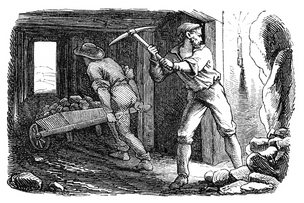The Russian war of aggression against Ukraine and the use of energy sources as a means of exerting political and social pressure dramatically illustrate the importance of raw materials.
This current example of energy supply is exemplary for a large number of raw materials that play an essential role in our economic and social life. Think of metals, rare earths and fertilisers, for example, which are needed to maintain our standard of living. The extraction of raw materials and their supply chains have global dimensions and affect not only economic and political interests, but also the fundamental ethical and moral concerns of affected communities.
Raw materials engineers plan, organise and monitor the extraction and supply of raw materials. In doing so, raw materials engineers work in a field of tension between technical feasibility, economic profitability, legal protection and ecological and social responsibility. However, there is still a lack of basic ethical knowledge in the university education of raw materials engineers, which enables the prospective engineers to recognise and evaluate ethically questionable situations and to form their own reliable judgement.
As part of this pioneering project funded by the Volkswagen Foundation, a multidisciplinary scientific team from RWTH Aachen University (RWTH) and the Berlin University of Applied Sciences and Technology (BHT), led by Professor Bernd Lottermoser (RWTH) and Professor Matthias Schmidt (BHT), will develop teaching and learning material and a mixed-reality manual ‘Ethical Mining’ for students and practitioners. Thus the project can provide new impetus for the national and international training of tomorrow's raw materials experts and indirectly affect raw materials policy and the governance of companies.





